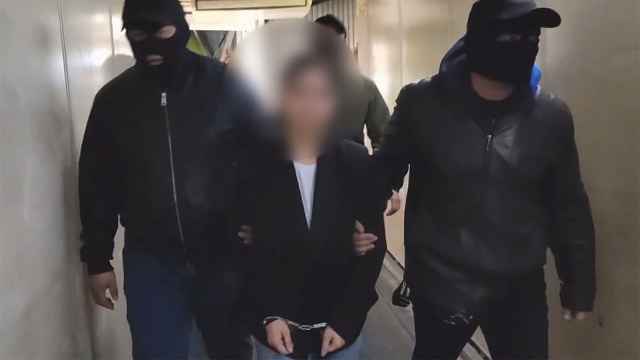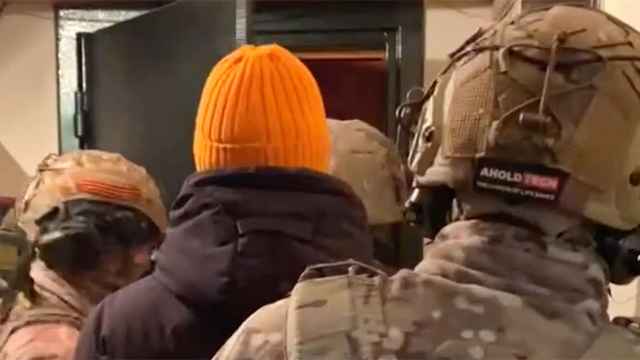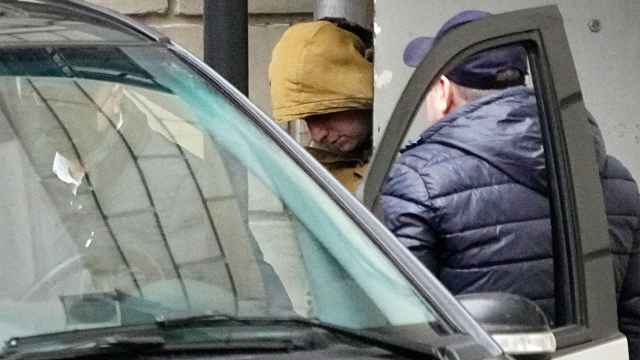Foreign correspondents in Russia have been forced to develop a very sophisticated early warning system for danger in the two decades since Vladimir Putin came to power. In a country where the letter of the law matters only when someone powerful decides to use it, this mechanism has been the only way most journalists have been able to continue operating safely inside the country.
Under Putin, Russia very rapidly reverted to the tried and tested methods employed by police states for dealing with foreign journalists, namely threatening to withhold visas, and thus access to the country, as leverage in an attempt to coerce them to provide more positive coverage.
Even as early as 2002, when Putin had only been in power for two years, 31 foreign journalists had their press passes revoked for alleged “illegal journalistic activity,” 18 of whom were subsequently refused re-entry to Russia and had their Russian visa applications rejected.
The early warning system for journalists involved two key institutions: the Foreign Ministry and Dmitry Peskov, Putin’s spokesperson. The FSB also played a role in the Kremlin's cat-and-mouse game with foreign journalists as it was the agency's counterintelligence department that formally revoked press visas. It also fell to the FSB to look out for any “missteps” by foreign correspondents (entering one of Russia's many "prohibited zones" was always the transgression most beloved by the Chekists) and then to use those mistakes to approach and recruit.
Despite this, the FSB was not part of the early warning system — if a journalist wanted to get a sense of where they were with the Kremlin, it made far more sense to speak to the Foreign Ministry or with Peskov.
When Putin launched his invasion of Ukraine in February 2022, the rules for journalists were significantly tightened. The Kremlin blocked a wide range of social media platforms, cracked down harshly on any unfavorable coverage in the Russian media, and introduced military censorship. Many foreign journalists left the country as it was not at all clear how far the Russian authorities were prepared to go in implementing draconian new legislation that criminalized the "discrediting" of the military when it came to foreign media coverage.
Those who decided to remain in the country have been walking on very thin ice ever since. The two institutions they were used to dealing with have either been cut out of the loop or were unwilling to say with any degree of detail what they thought would constitute a crime for foreign journalists. Nevertheless, they both continued to harass foreign journalists and have appeared increasingly aggressive with every day that has passed.
Still, even if the rules tightened, the early warning system still appeared to be in place and foreign correspondents continued to count on the fact that the Foreign Ministry and Peskov would still have a say in their treatment should they ever fall foul of the law.
The Wednesday arrest of the Wall Street Journal journalist Evan Gershkovich, someone I have had the honor of knowing for many years, has shown that this is no longer the case and that the early warning system has been destroyed once and for all.
It no longer makes sense to see what the current feeling at the Foreign Ministry is, what kind of mood Zakharova was in yesterday, or what Peskov thought of your most recent story. There are now only two institutions that matter: Vladimir Putin and the FSB. They now exclusively decide who the next target will be, and what the next priority is, whether it be to teach the Wall Street Journal and the U.S. media as a whole a lesson, to send a message to all the foreign correspondents still working in Russia, or to start assembling a group of hostages that can ultimately be used to arrange swaps for the Russian spies that have been arrested in the West.
From now on, all foreign journalists, and by default all foreign nationals, are potential fair game for Putin and the Russian security services, and it would appear that this rule applies not just to journalism but to everything happening in Russia from now on.
A Message from The Moscow Times:
Dear readers,
We are facing unprecedented challenges. Russia's Prosecutor General's Office has designated The Moscow Times as an "undesirable" organization, criminalizing our work and putting our staff at risk of prosecution. This follows our earlier unjust labeling as a "foreign agent."
These actions are direct attempts to silence independent journalism in Russia. The authorities claim our work "discredits the decisions of the Russian leadership." We see things differently: we strive to provide accurate, unbiased reporting on Russia.
We, the journalists of The Moscow Times, refuse to be silenced. But to continue our work, we need your help.
Your support, no matter how small, makes a world of difference. If you can, please support us monthly starting from just $2. It's quick to set up, and every contribution makes a significant impact.
By supporting The Moscow Times, you're defending open, independent journalism in the face of repression. Thank you for standing with us.
Remind me later.








